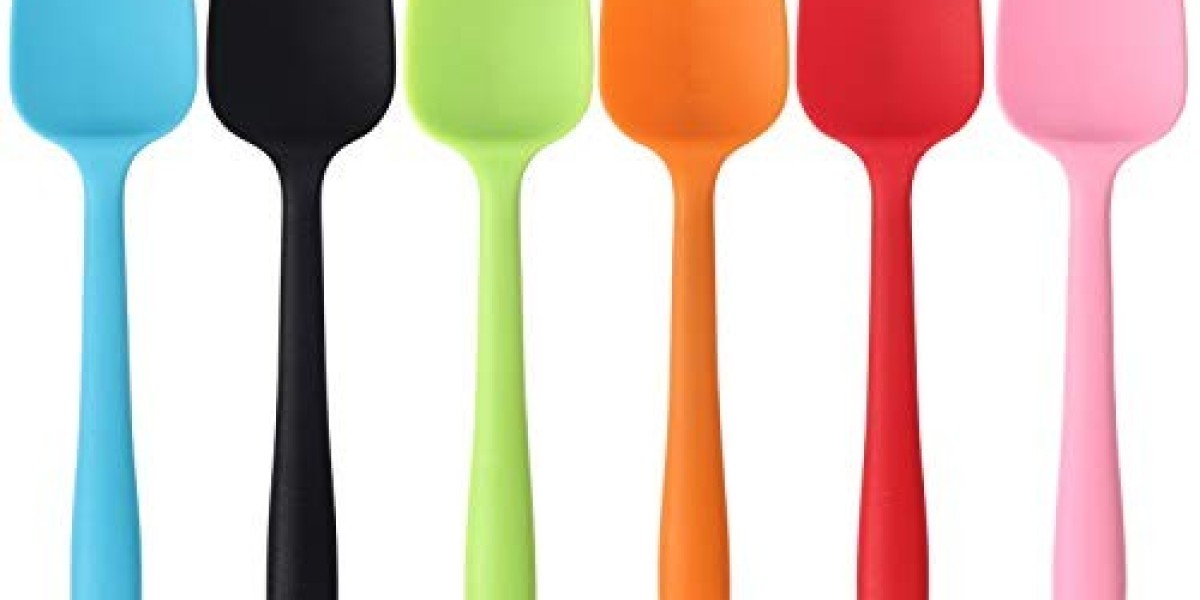Silicone spatulas have become a staple in modern kitchens, favored for their flexibility, heat resistance, and durability. However, a question frequently arises: Are silicone spatulas toxic? Understanding the materials and science behind silicone kitchen tools can help dispel myths and provide clarity.
What Are Silicone Spatulas Made Of?
Silicone spatulas are crafted from food-grade silicone, a synthetic polymer made by combining silicon, oxygen, carbon, and hydrogen. Silicon, a natural element, is abundant in sand and rock, making silicone a derivative of naturally occurring materials. When processed into silicone, it forms a durable, non-reactive, and heat-resistant material ideal for cooking tools.
Food-grade silicone is specifically manufactured to meet safety standards set by regulatory agencies like the U.S. Food and Drug Administration (FDA) and the European Food Safety Authority (EFSA). These standards ensure the silicone is safe for food contact, meaning it doesn’t leach harmful substances under normal usage conditions.
Heat Resistance and Chemical Stability
One of the main advantages of silicone spatulas is their remarkable heat resistance. Most food-grade silicone can withstand temperatures ranging from -40°F to 450°F (-40°C to 232°C) without melting or degrading. This makes them suitable for high-heat cooking tasks like stirring hot soups or scraping pans.
The question “are silicone spatulas toxic?” often arises due to concerns about chemical leaching when exposed to heat. Scientific studies indicate that high-quality food-grade silicone remains chemically stable even at elevated temperatures. It does not release toxic substances like BPA (bisphenol A), phthalates, or other harmful chemicals commonly found in certain plastics.
Concerns About Silicone Leaching
While silicone is considered non-toxic, concerns about leaching arise from low-quality or non-food-grade silicone products. Subpar manufacturing processes may lead to the inclusion of fillers or additives that can degrade and release unwanted substances. This risk emphasizes the importance of purchasing utensils labeled as "food-grade" or certified by reputable regulatory bodies.
A 2016 study published in the Journal of Food Additives and Contaminants evaluated the safety of silicone baking molds. The researchers found no significant migration of chemical substances from high-quality silicone molds into food, even at high temperatures. This evidence supports the conclusion that silicone kitchen tools, including spatulas, are safe when made from verified food-grade materials.
Comparing Silicone to Other Materials
Silicone spatulas are often compared to kitchen tools made of plastic, metal, or wood. Plastics may contain harmful additives like BPA, which can leach into food, especially when exposed to heat. Wooden utensils, while natural, can absorb moisture and harbor bacteria if not properly maintained. Metal tools, though durable, may scratch non-stick cookware and lack the flexibility of silicone.
In contrast, silicone combines the best of these materials. It’s non-porous, easy to clean, and resistant to both heat and chemical reactions. The question remains: "Are silicone spatulas toxic?" The evidence strongly suggests they are safer than many alternatives when used correctly.
Tips for Safe Use of Silicone Spatulas
To ensure the safety of your silicone spatulas, follow these guidelines:
Choose High-Quality Products: Look for spatulas labeled "food-grade" or certified by agencies like the FDA or EFSA.
Avoid Excessive Heat: While silicone is heat-resistant, prolonged exposure to extreme temperatures beyond its limit may cause degradation.
Inspect for Damage: Replace spatulas that show signs of cracking, discoloration, or other wear that may compromise their integrity.
Avoid Cheap Counterfeits: Low-cost products may use fillers that compromise safety and performance.
Environmental Considerations
Another angle to consider is the environmental impact of silicone spatulas. Unlike single-use plastics, silicone tools are durable and long-lasting, reducing waste. While silicone isn’t biodegradable, it’s recyclable through specialized facilities. By choosing quality silicone utensils, you minimize the need for replacements, contributing to a more sustainable kitchen.
Addressing Consumer Myths
The question “are silicone spatulas toxic?” persists largely due to misinformation and confusion. It’s important to differentiate between food-grade silicone and lower-quality products that may not meet safety standards. Reputable manufacturers often provide certifications and test results to assure consumers of their products’ safety.
Final Verdict: Are Silicone Spatulas Toxic?
Based on available scientific evidence and regulatory standards, food-grade silicone spatulas are not toxic. They’re safe for everyday kitchen use, even at high temperatures. When properly cared for and sourced from trusted brands, silicone spatulas offer a safe, durable, and environmentally friendly alternative to other kitchen tools.
By understanding the material properties and ensuring you purchase certified products, you can confidently answer the question “are silicone spatulas toxic?” with a resounding “No.” Silicone spatulas are a reliable and safe choice for any kitchen, combining functionality with peace of mind.










